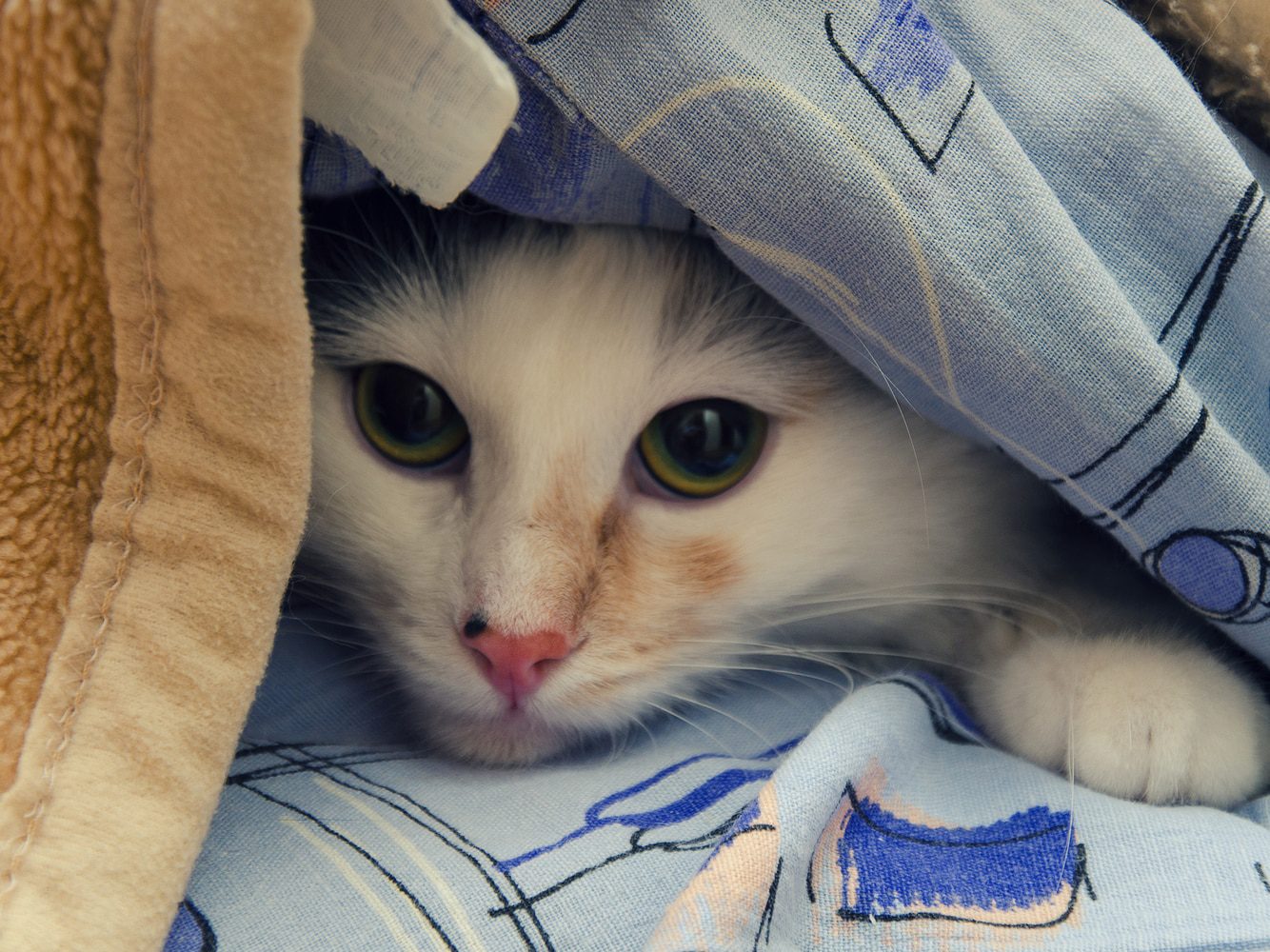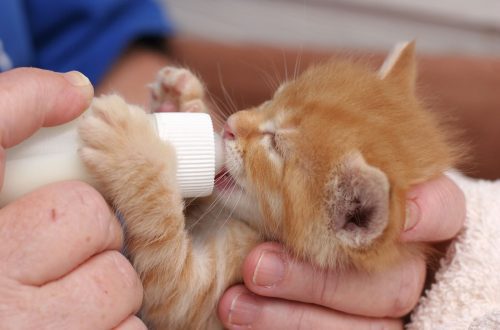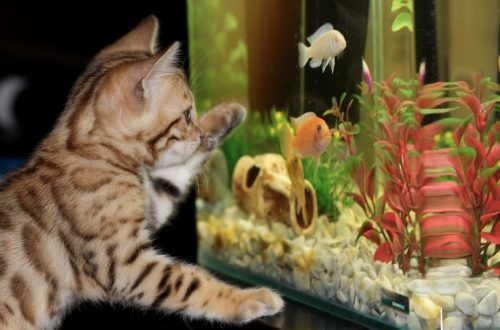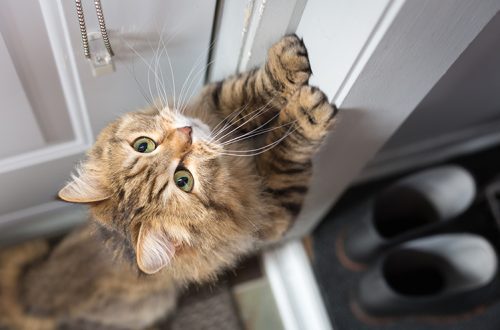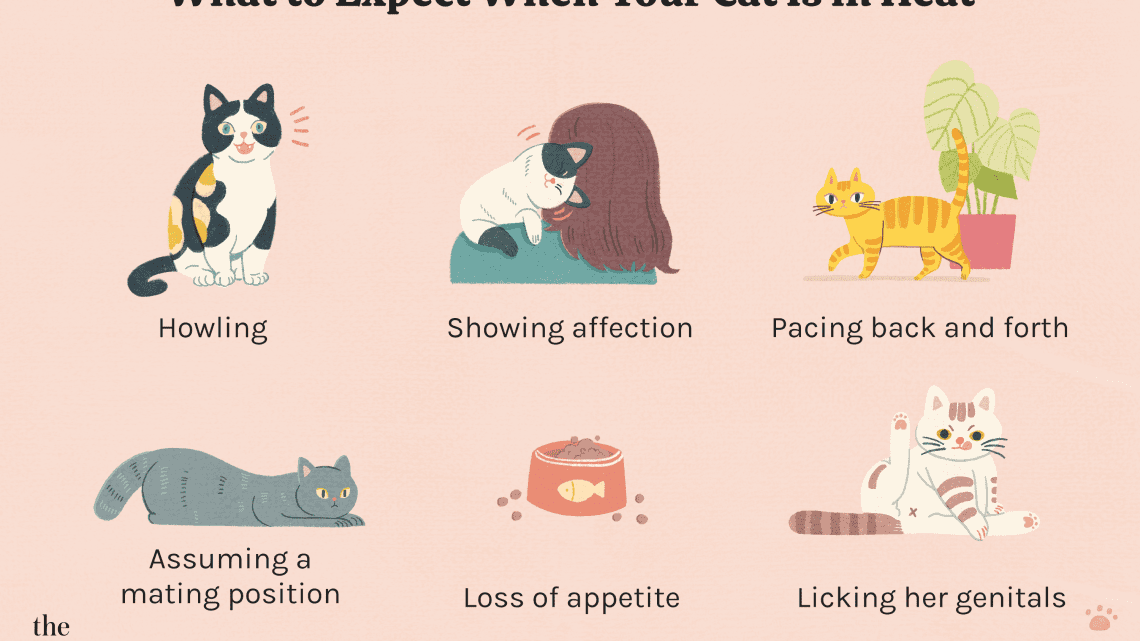
Do cats menstruate?
If you have just recently adopted a pet, then you are probably wondering: “Do cats have periods?”, “What is estrus?” or “Why is my cat bleeding?”
Cats do have a sexual cycle, but their “critical days” are quite different from menstruation in women. Read on to find out how your cat is feeling in heat and how you can help her.
Sexual cycle in mammals
Women, like other female mammals, have sexual cycles (for women they occur monthly and are called “menstruation”), during which the uterine lining is “renewed” every 28–38 days (cycle length is individual for everyone). In females of some other placental mammals (orders of bats, primates and jumping birds) similar cycles are observed.
Other species of mammals of reproductive age also have a menstrual-like cycle, notes BBC Discover Wildlife. However, in them the “old” uterine mucosa is resorbed, and does not come out with blood. It is this reproductive process, which is called “heat” or more often “estrus”, that occurs in a cat on a monthly basis if it is not spayed. That is, sterilized or neutered pets do not go into heat.
Cats are polyester animals, explains Animal Planet. This means they go into heat several times a year. If the cat does not become pregnant, then the sexual cycle will be repeated until she is spayed – or until she becomes pregnant after mating. Also, all cats that have reached puberty (that is, they have fully developed the entire reproductive system and are ready for the birth of offspring) need at least 12 hours of daylight to normal sexual cycle. So, for example, in cats that constantly live in a cozy house or apartment with artificial lighting, hormonal activity occurs constantly, and not just for six months, Animal Planet notes. During the “heaviest part” of the sexual cycle, your pet is at the mercy of the sex hormones, which are “working at full capacity.”
Why is my cat bleeding?
Do cats have periods? This is a very important question, if only because if you know your cat’s cycle, you can roughly determine why she is bleeding. As in humans, in cats, the sexual or estrous cycle begins at the onset of puberty, at about four to six months of age, and can last from seven to ten days. Unlike humans, who are able to conceive throughout the year, in cats, the estrous cycle most often begins in early spring and ends in late autumn. But, as mentioned above, in domestic cats, estrus can continue all year round.
In addition to loud and strange meowing, during this period, your cat may experience light bleeding, more specifically spotting, which is usually not a cause for concern. You will most likely notice small blood stains on the floor or on her bedding. If you know your pet’s cycle and notice anything unusual, contact your veterinarian immediately.
Cats are known for their quirky antics, but their oddities can intensify during a cycle. Along with the unnatural and unusual sounds, a cat in heat will have very specific behaviors, such as rolling on the floor, demanding more attention, rubbing against you or furniture, leaving tags, or even trying to break out into the street, notes Petful.
Keeping Your Cat Healthy
What to do if a cat is in heat? Cats can be very difficult to endure the sexual cycle, and sterilization in this case has many advantages. For example, spaying can prevent the development of ovarian and uterine cancer in cats.
According to the College of Veterinary Medicine at Cornell University, it is recommended that a cat be spayed before her first estrus. The neutering procedure performed in a veterinary clinic is the removal of the reproductive organs of a cat, after which she will not have an estrous cycle (that is, she will no longer have heat) and the possibility of becoming pregnant. Because animals can become pregnant during their very first reproductive cycle, it’s important to spay them to prevent overpopulation of cats, stresses the American Society for the Prevention of Cruelty to Animals. Kittens, of course, are cute, but not all of them find a loving home.
When you take a cat home, be sure to ask if she has been spayed. If you’re unsure, check with your veterinarian during your furry checkup. We also recommend that you ask your veterinarian about your cat’s cycle and how you can stop it. While it may not be entirely clear how to behave during her estrous cycle, being informed and caring for your cat at all times is the best place to start.



